The Sherman Act
- The Sherman Act is a part of Antitrust Act;
- The Act offers criminal sanctions on individuals who undertake contracts or engage in any forms of conspiracy in restraint of commerce (American Bar Association, 2002).
A plaintiff must demonstrate that:
- A party was engaged in a conspiracy;
- The conspiracy resulted or potentially resulted in an unreasonable restraint of trade or commerce;
- The restrained trade or commerce was interstate in nature.
In a criminal antitrust case prosecution, the prosecutor must prove that the defendant:
- Intended to restrain commerce;
- Acted with knowledge of the apparent consequences of their actions (American Bar Association, 2002).
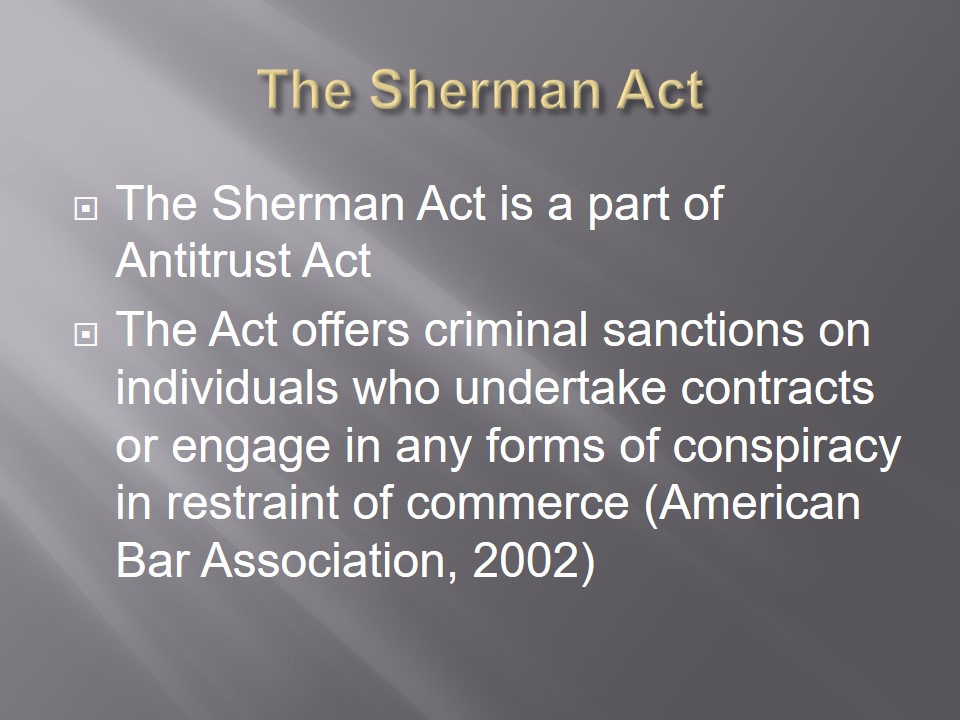
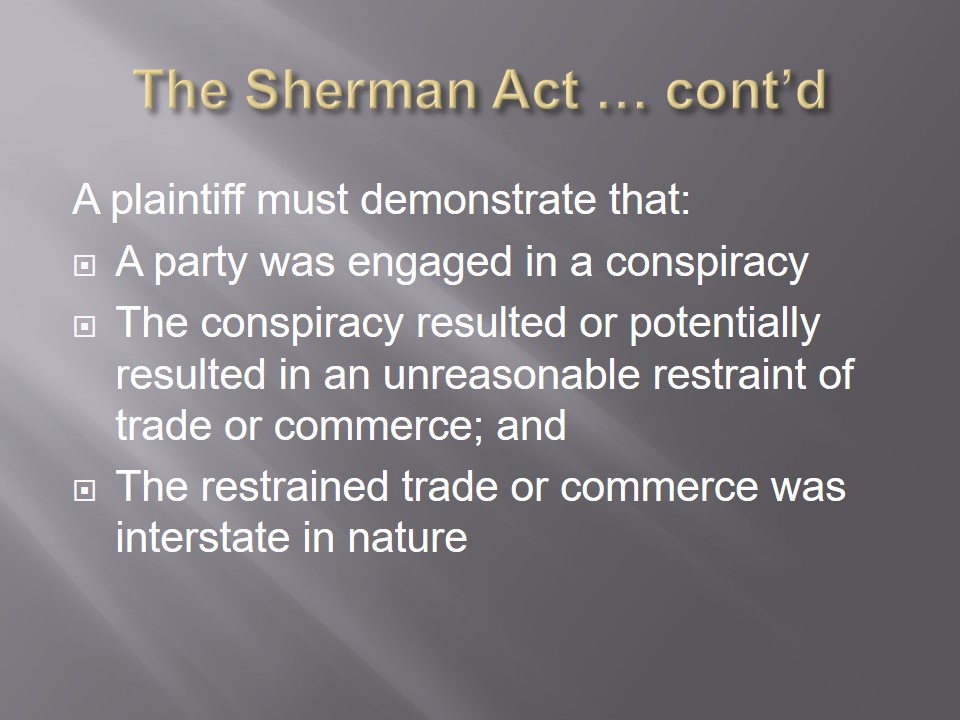
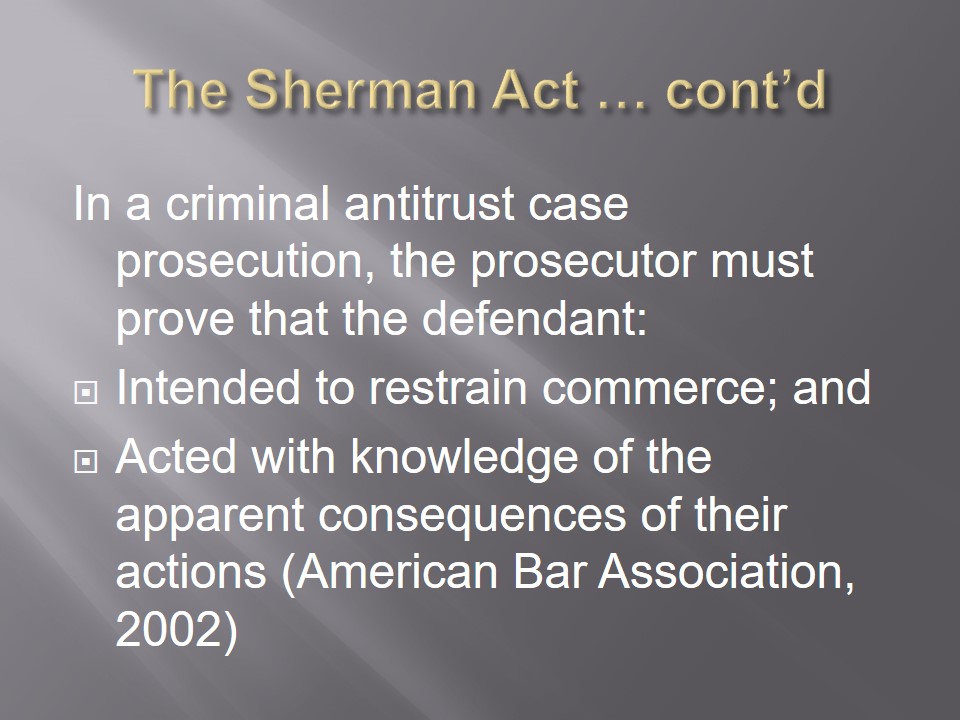
The Computer Fraud and Abuse Act
- The Act covers the Internet or computer fraud.
A defendant must have used a computer and/or the Internet to:
- Commit theft.
- Cause damage to computers with viruses.
- Deprive citizens or financial institutions of money or services.
The government must prove the following:
- Access to confidential federal information
- Access to information pertaining to financial records of financial institutions and consumer reporting agencies.
- Access to any computer of the US departments or agencies affected the government’s operations with such computers.
- Access to a protected computer without permission.
- Exceeding authorized access levels with the intent to defraud and obtain anything of value.
- Access to a protected computer with the intent to cause damage to the computer.
- Trafficking passwords or other data to allow unauthorized access.
- It entails extortion and threats to cause damage to a protected computer via transmission in Interstate or foreign commerce.
- If found guilty of the felony, the offender may get up to 20 years of a jail term and fined up to $250,000 (The Law Office of Bradley S. Sandler, 2012).
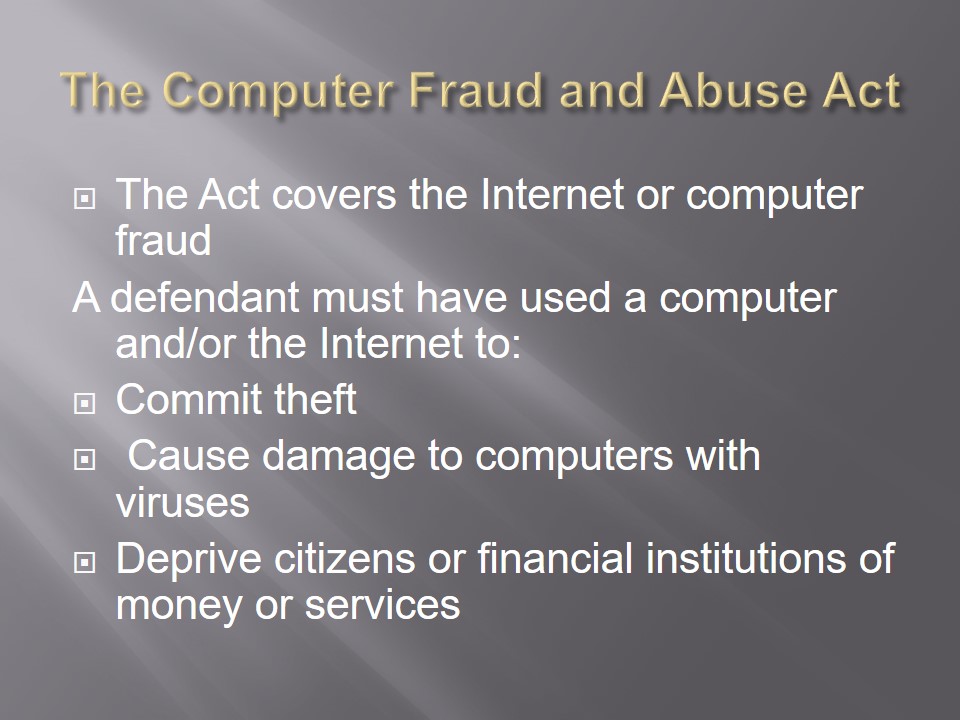
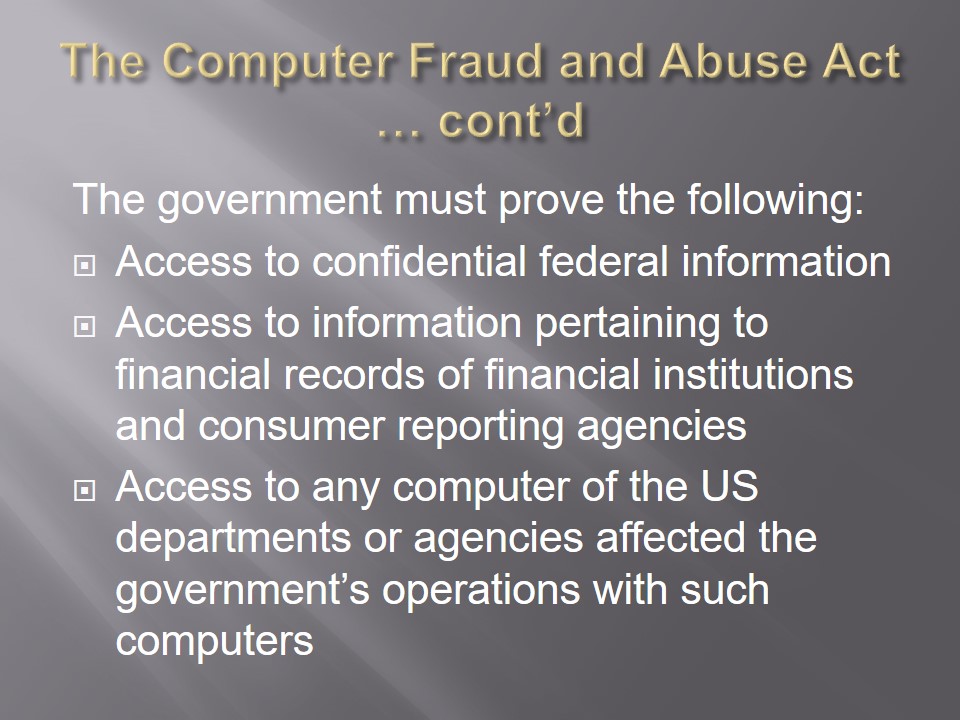
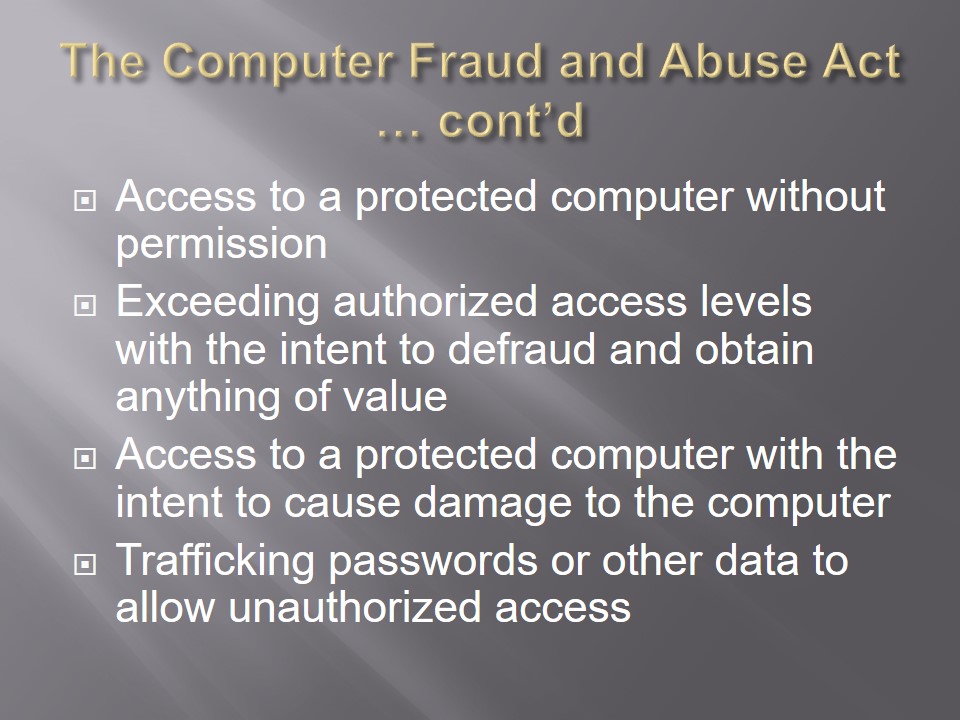
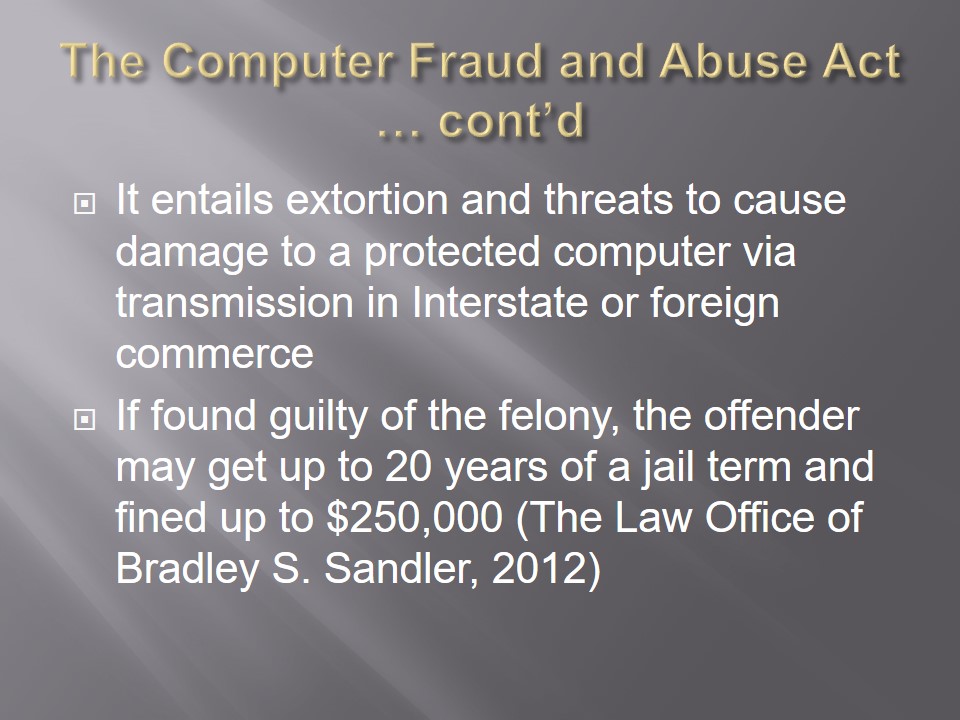
The Comprehensive Crime Control Act
- The Act aims to deter bank fraud.
- The objective of the suspect is to achieve a desired result by deception, trickery, concealment and/or dishonesty.
- The prosecutor must prove that the accused intended to defraud a financial institution federally insured by the United States Government.
The prosecutor must prove beyond a reasonable doubt that:
- The accused knowingly committed or attempted to execute a scheme or plan by means of false or fraudulent pretenses, representations or promises;
- The accused acted with the specific intent to defraud;
- False pretenses, representations or promises that the accused made were material.
- The accused placed the financial institution at risk for civil liability or financial loss.
- The financial institution was insured by the Federal Deposit Insurance Corporation or an equivalent agency as defined by the law.
- Any guilty party may be imprisoned up to 30 years and fined up to $1,000,000 (The Law Office of Bradley S. Sandler, 2012).
- The punishment is per transaction and therefore, the guilty party may receive more than 30 years based on the number of offenses.
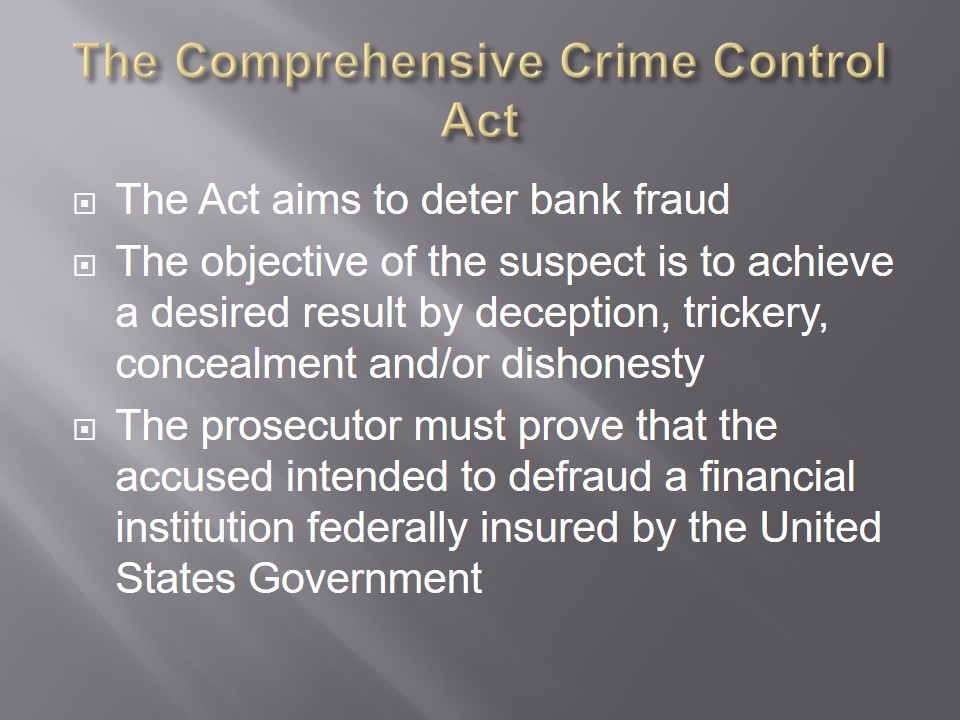
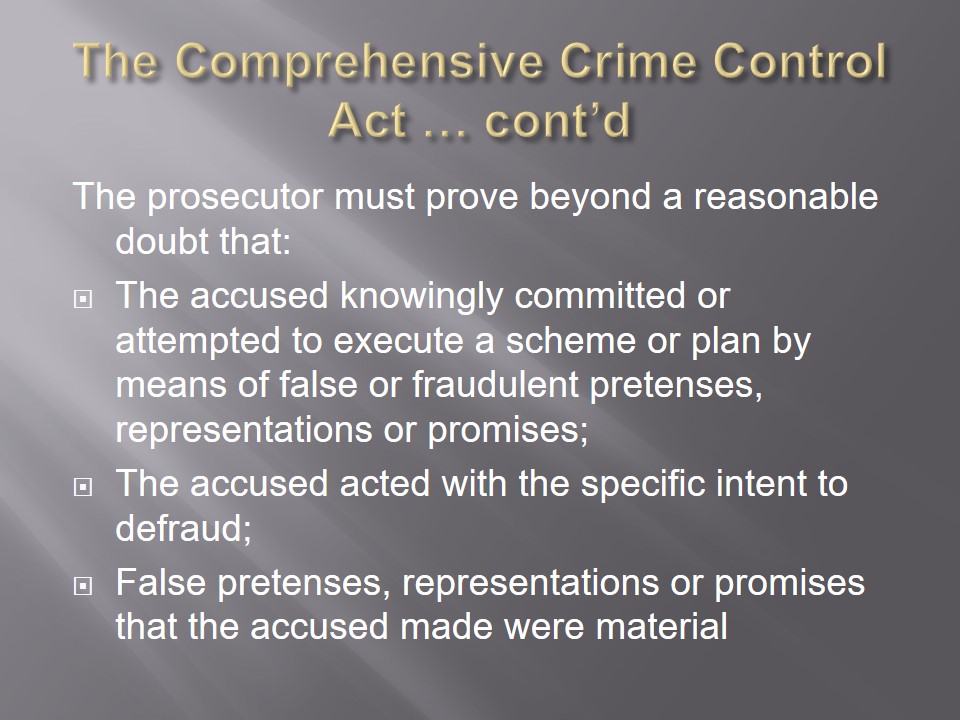
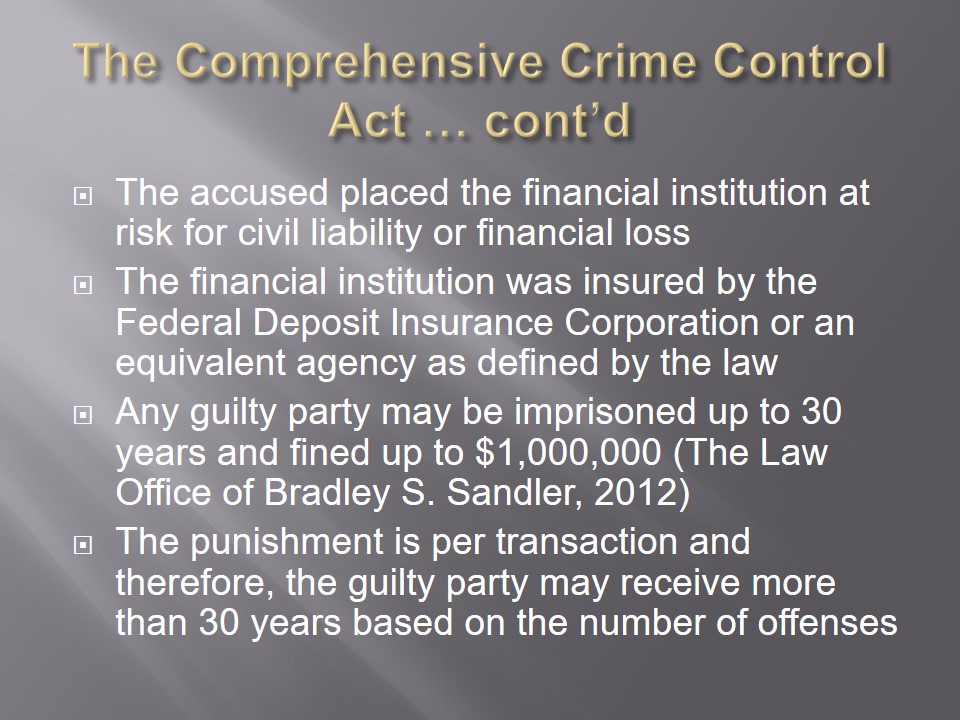
The Money Laundering Control Act of 1986
- The Act was enacted to deter organized crime and narcotics traffickers from money laundering practices.
- The jury must prove beyond any reasonable doubt that the accused concealed the existence, illegal sources or illegal applications of incomes and disguised such incomes to make them appear legitimate.
- The Act offers criminal sanctions for any persons who perform a monetary transaction knowing or with a reason to know that the funds involved were derived from unlawful activities (O’Sullivan, 2012).
- Initially, the Act targeted “the lifeblood of organized crime”.
- Today, prosecutors use it against several corporations and otherwise legitimate businesses because it allows them to focus on criminal conducts such as tax offenses.
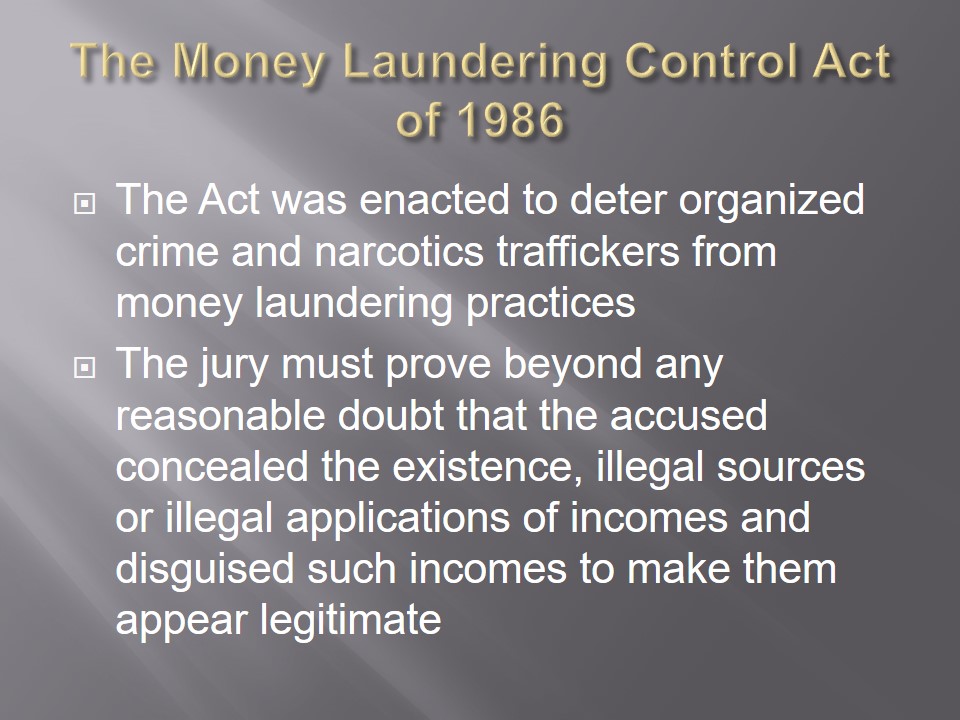
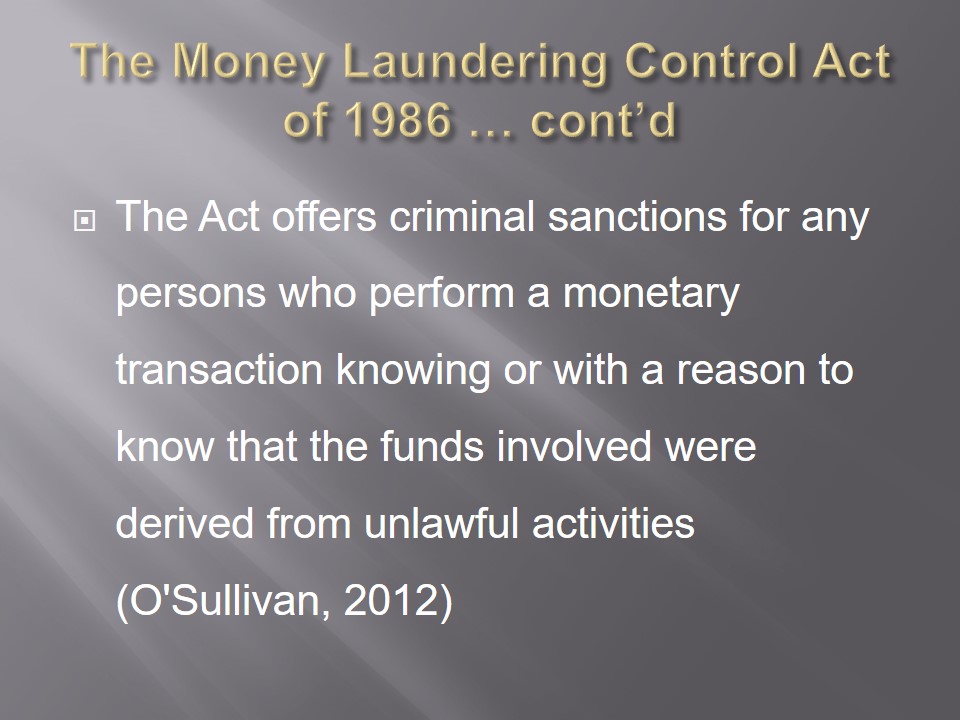
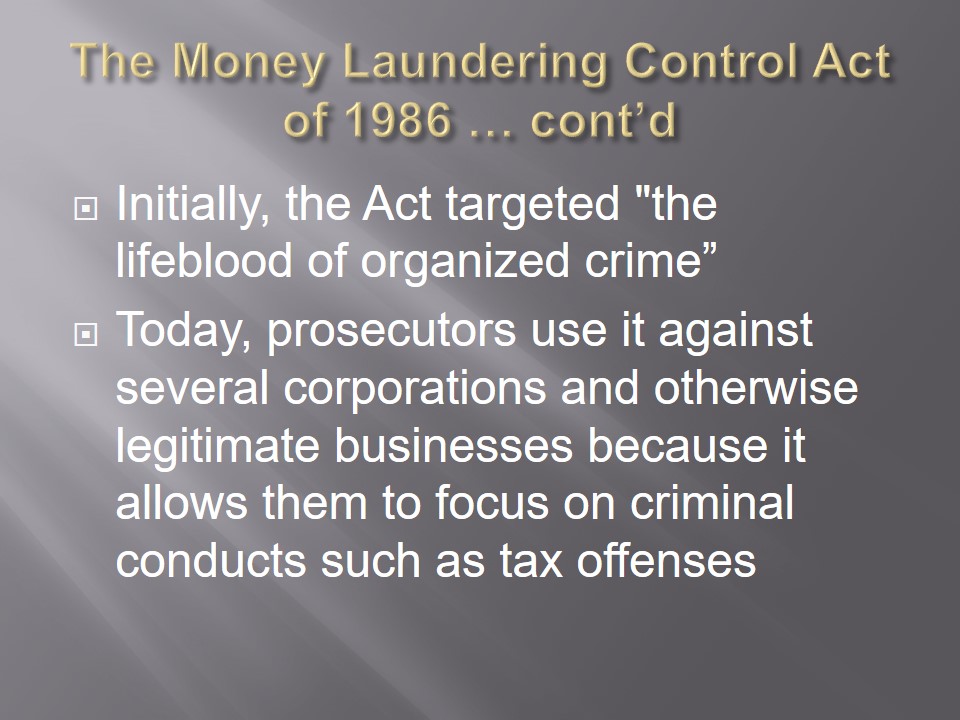
Conclusion
- White-collar crime involves several forms of crimes committed through deceit and mainly motivated by financial gain.
- Individuals facing prosecution for any forms of white-collar crimes require a competent defense team because such crimes are considered serious.
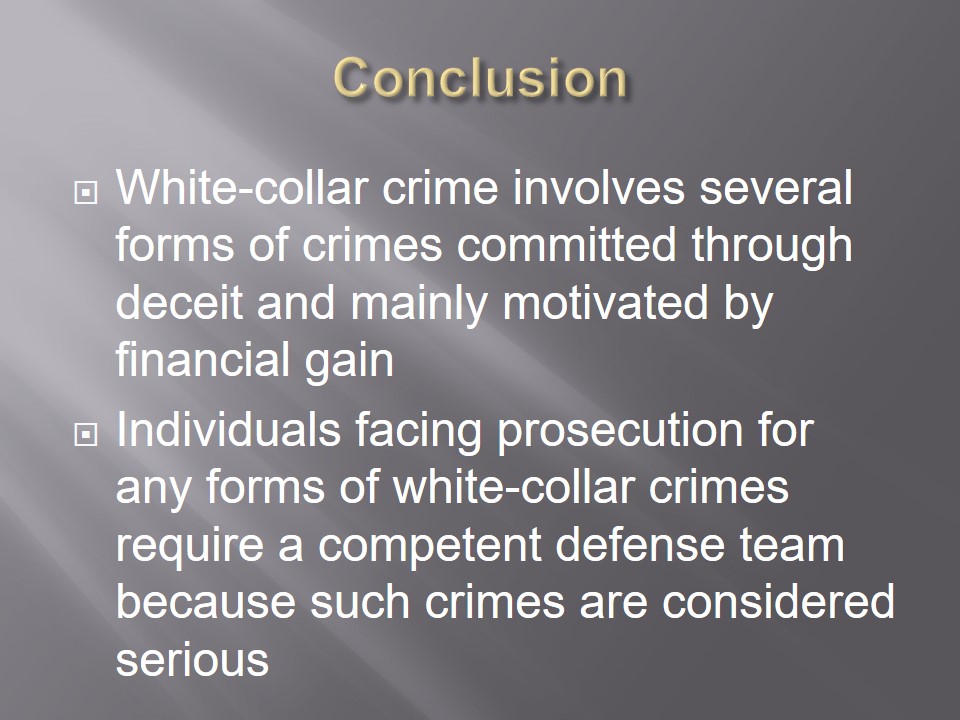
Credibility of Sources Used
Sources used are credible:
- American Bar Association (ABA) offers a list of resources for different States.
- The Law Office of Bradley S. Sandler is a credible law firm that provides a defense team for accused in Beverly Hills, California and the State of Los Angeles.
- O’Sullivan covers a variety of substantive areas of white-collar crimes alongside procedural issues in such cases.
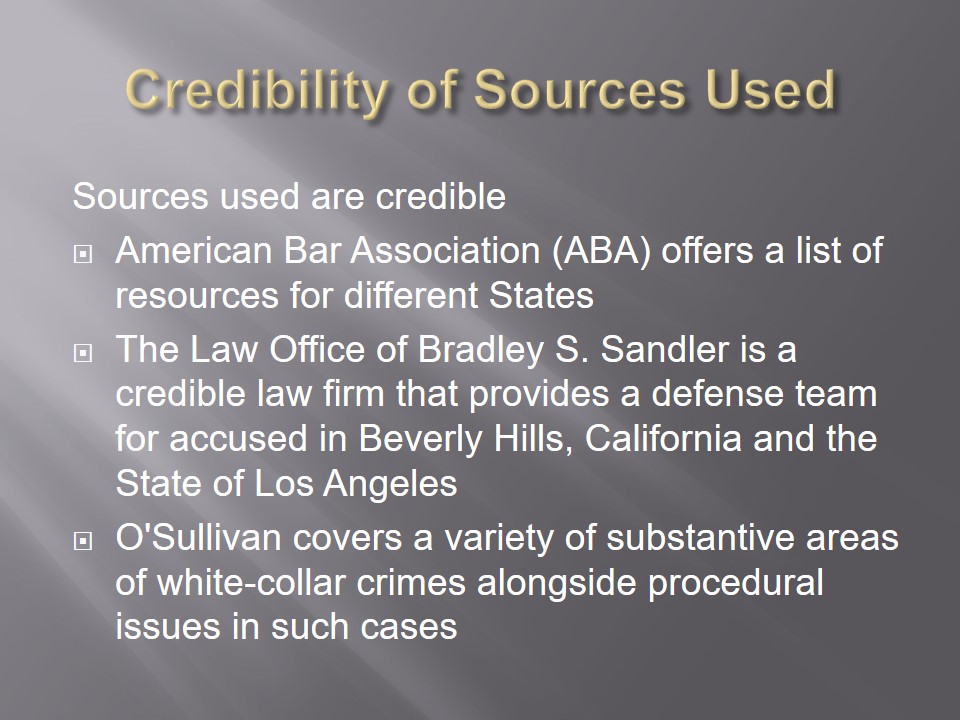
References
American Bar Association. (2002). White Collar Criminal Statutes. Web.
O’Sullivan, J. R. (2012). Federal White Collar Crime: Cases and Materials (5th ed.). New York: West Publishing.
The Law Office of Bradley S. Sandler. (2012). Federal White Collar Crimes. Web.